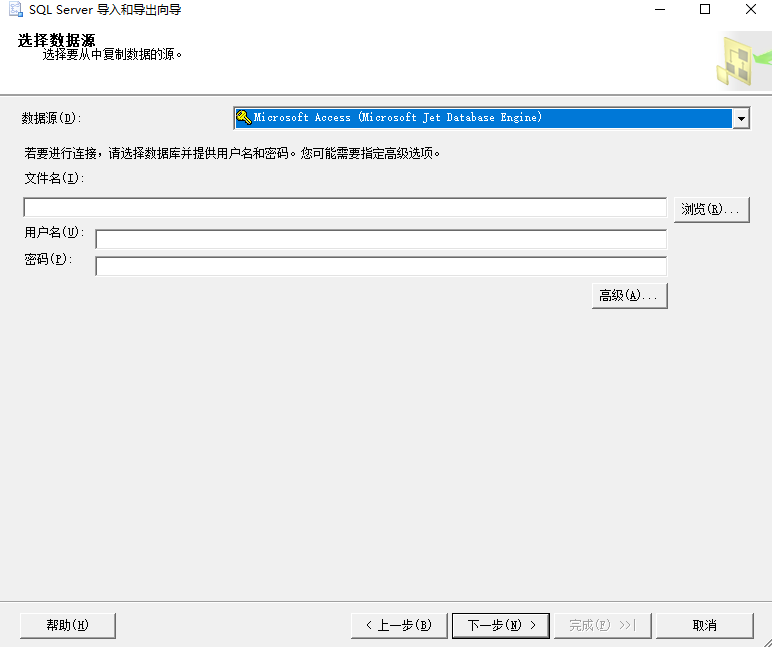可以将文章内容翻译成中文,广告屏蔽插件可能会导致该功能失效(如失效,请关闭广告屏蔽插件后再试):
问题:
PHP must track the amount of CPU time a particular script has used in order to enforce the max_execution_time limit.
Is there a way to get access to this inside of the script? I'd like to include some logging with my tests about how much CPU was burnt in the actual PHP (the time is not incremented when the script is sitting and waiting for the database).
I am using a Linux box.
回答1:
On unixoid systems (and in php 7+ on Windows as well), you can use getrusage, like:
// Script start
$rustart = getrusage();
// Code ...
// Script end
function rutime($ru, $rus, $index) {
return ($ru["ru_$index.tv_sec"]*1000 + intval($ru["ru_$index.tv_usec"]/1000))
- ($rus["ru_$index.tv_sec"]*1000 + intval($rus["ru_$index.tv_usec"]/1000));
}
$ru = getrusage();
echo "This process used " . rutime($ru, $rustart, "utime") .
" ms for its computations\n";
echo "It spent " . rutime($ru, $rustart, "stime") .
" ms in system calls\n";
Note that you don't need to calculate a difference if you are spawning a php instance for every test.
回答2:
If all you need is the wall-clock time, rather than the CPU execution time, then it is simple to calculate:
//place this before any script you want to calculate time
$time_start = microtime(true);
//sample script
for($i=0; $i<1000; $i++){
//do anything
}
$time_end = microtime(true);
//dividing with 60 will give the execution time in minutes otherwise seconds
$execution_time = ($time_end - $time_start)/60;
//execution time of the script
echo '<b>Total Execution Time:</b> '.$execution_time.' Mins';
// if you get weird results, use number_format((float) $execution_time, 10)
Note that this will include time that PHP is sat waiting for external resources such as disks or databases, which is not used for max_execution_time.
回答3:
Shorter version of talal7860's answer
<?php
// At start of script
$time_start = microtime(true);
// Anywhere else in the script
echo 'Total execution time in seconds: ' . (microtime(true) - $time_start);
As pointed out, this is 'wallclock time' not 'cpu time'
回答4:
The easiest way:
<?php
$time1 = microtime(true);
//script code
//...
$time2 = microtime(true);
echo 'script execution time: ' . ($time2 - $time1); //value in seconds
回答5:
<?php
// Randomize sleeping time
usleep(mt_rand(100, 10000));
// As of PHP 5.4.0, REQUEST_TIME_FLOAT is available in the $_SERVER superglobal array.
// It contains the timestamp of the start of the request with microsecond precision.
$time = microtime(true) - $_SERVER["REQUEST_TIME_FLOAT"];
echo "Did nothing in $time seconds\n";
?>
回答6:
I created an ExecutionTime class out of phihag answer that you can use out of box:
class ExecutionTime
{
private $startTime;
private $endTime;
public function start(){
$this->startTime = getrusage();
}
public function end(){
$this->endTime = getrusage();
}
private function runTime($ru, $rus, $index) {
return ($ru["ru_$index.tv_sec"]*1000 + intval($ru["ru_$index.tv_usec"]/1000))
- ($rus["ru_$index.tv_sec"]*1000 + intval($rus["ru_$index.tv_usec"]/1000));
}
public function __toString(){
return "This process used " . $this->runTime($this->endTime, $this->startTime, "utime") .
" ms for its computations\nIt spent " . $this->runTime($this->endTime, $this->startTime, "stime") .
" ms in system calls\n";
}
}
usage:
$executionTime = new ExecutionTime();
$executionTime->start();
// code
$executionTime->end();
echo $executionTime;
Note: In PHP 5, the getrusage function only works in Unix-oid systems. Since PHP 7, it also works on Windows.
回答7:
Gringod at developerfusion.com gives this good answer:
<!-- put this at the top of the page -->
<?php
$mtime = microtime();
$mtime = explode(" ",$mtime);
$mtime = $mtime[1] + $mtime[0];
$starttime = $mtime;
;?>
<!-- put other code and html in here -->
<!-- put this code at the bottom of the page -->
<?php
$mtime = microtime();
$mtime = explode(" ",$mtime);
$mtime = $mtime[1] + $mtime[0];
$endtime = $mtime;
$totaltime = ($endtime - $starttime);
echo "This page was created in ".$totaltime." seconds";
;?>
From (http://www.developerfusion.com/code/2058/determine-execution-time-in-php/)
回答8:
I think you should look at xdebug. The profiling options will give you a head start toward knowing many process related items.
http://www.xdebug.org/
回答9:
The cheapest and dirtiest way to do it is simply make microtime() calls at places in your code you want to benchmark. Do it right before and right after database queries and it's simple to remove those durations from the rest of your script execution time.
A hint: your PHP execution time is rarely going to be the thing that makes your script timeout. If a script times out it's almost always going to be a call to an external resource.
PHP microtime documentation:
http://us.php.net/microtime
回答10:
It is going to be prettier if you format the seconds output like:
echo "Process took ". number_format(microtime(true) - $start, 2). " seconds.";
will print
Process took 6.45 seconds.
This is much better than
Process took 6.4518549156189 seconds.
回答11:
You may only want to know the execution time of parts of your script. The most flexible way to time parts or an entire script is to create 3 simple functions (procedural code given here but you could turn it into a class by putting class timer{} around it and making a couple of tweaks). This code works, just copy and paste and run:
$tstart = 0;
$tend = 0;
function timer_starts()
{
global $tstart;
$tstart=microtime(true); ;
}
function timer_ends()
{
global $tend;
$tend=microtime(true); ;
}
function timer_calc()
{
global $tstart,$tend;
return (round($tend - $tstart,2));
}
timer_starts();
file_get_contents('http://google.com');
timer_ends();
print('It took '.timer_calc().' seconds to retrieve the google page');
回答12:
I wrote a function that check remaining execution time.
Warning: Execution time counting is different on Windows and on Linux platform.
/**
* Check if more that `$miliseconds` ms remains
* to error `PHP Fatal error: Maximum execution time exceeded`
*
* @param int $miliseconds
* @return bool
*/
function isRemainingMaxExecutionTimeBiggerThan($miliseconds = 5000) {
$max_execution_time = ini_get('max_execution_time');
if ($max_execution_time === 0) {
// No script time limitation
return true;
}
if (strtoupper(substr(PHP_OS, 0, 3)) === 'WIN') {
// On Windows: The real time is measured.
$spendMiliseconds = (microtime(true) - $_SERVER["REQUEST_TIME_FLOAT"]) * 1000;
} else {
// On Linux: Any time spent on activity that happens outside the execution
// of the script such as system calls using system(), stream operations
// database queries, etc. is not included.
// @see http://php.net/manual/en/function.set-time-limit.php
$resourceUsages = getrusage();
$spendMiliseconds = $resourceUsages['ru_utime.tv_sec'] * 1000 + $resourceUsages['ru_utime.tv_usec'] / 1000;
}
$remainingMiliseconds = $max_execution_time * 1000 - $spendMiliseconds;
return ($remainingMiliseconds >= $miliseconds);
}
Using:
while (true) {
// so something
if (!isRemainingMaxExecutionTimeBiggerThan(5000)) {
// Time to die.
// Safely close DB and done the iteration.
}
}
回答13:
As an alternative you can just put this line in your code blocks and check php logs, for really slow functions it's pretty useful:
trigger_error("Task done at ". strftime('%H:%m:%S', time()), E_USER_NOTICE);
For serious debugging use XDebug + Cachegrind, see https://blog.nexcess.net/2011/01/29/diagnosing-slow-php-execution-with-xdebug-and-kcachegrind/
回答14:
Further expanding on Hamid's answer, I wrote a helper class that can be started and stopped repeatedly (for profiling inside a loop).
class ExecutionTime
{
private $startTime;
private $endTime;
private $compTime = 0;
private $sysTime = 0;
public function Start(){
$this->startTime = getrusage();
}
public function End(){
$this->endTime = getrusage();
$this->compTime += $this->runTime($this->endTime, $this->startTime, "utime");
$this->systemTime += $this->runTime($this->endTime, $this->startTime, "stime");
}
private function runTime($ru, $rus, $index) {
return ($ru["ru_$index.tv_sec"]*1000 + intval($ru["ru_$index.tv_usec"]/1000))
- ($rus["ru_$index.tv_sec"]*1000 + intval($rus["ru_$index.tv_usec"]/1000));
}
public function __toString(){
return "This process used " . $this->compTime . " ms for its computations\n" .
"It spent " . $this->systemTime . " ms in system calls\n";
}
}



